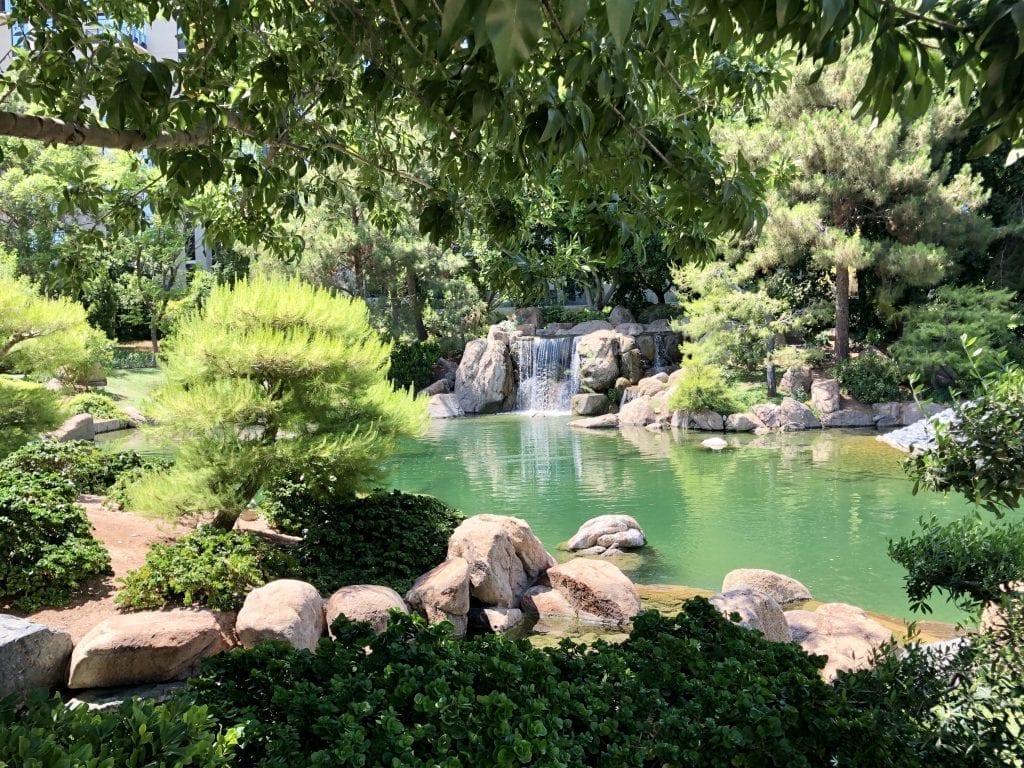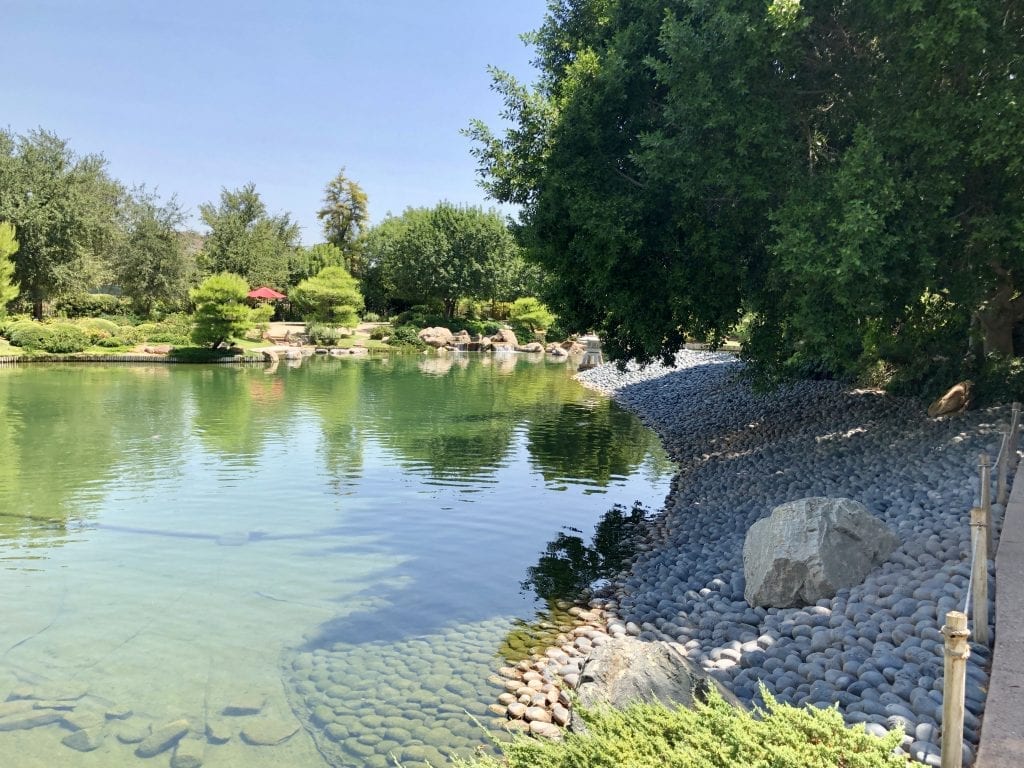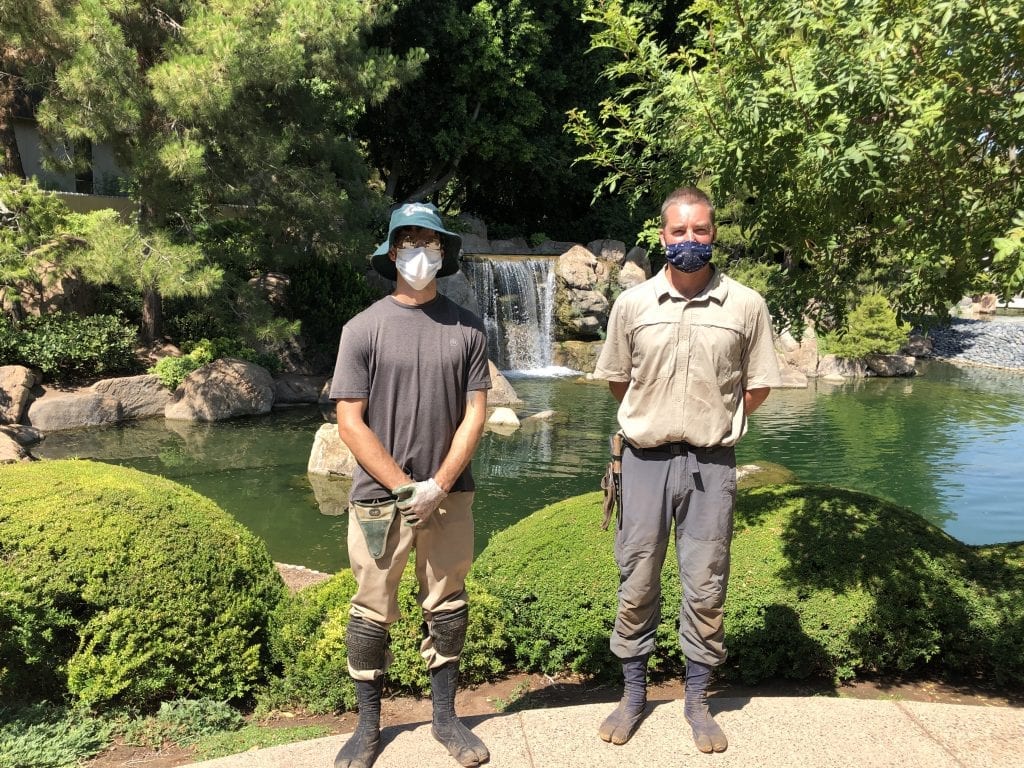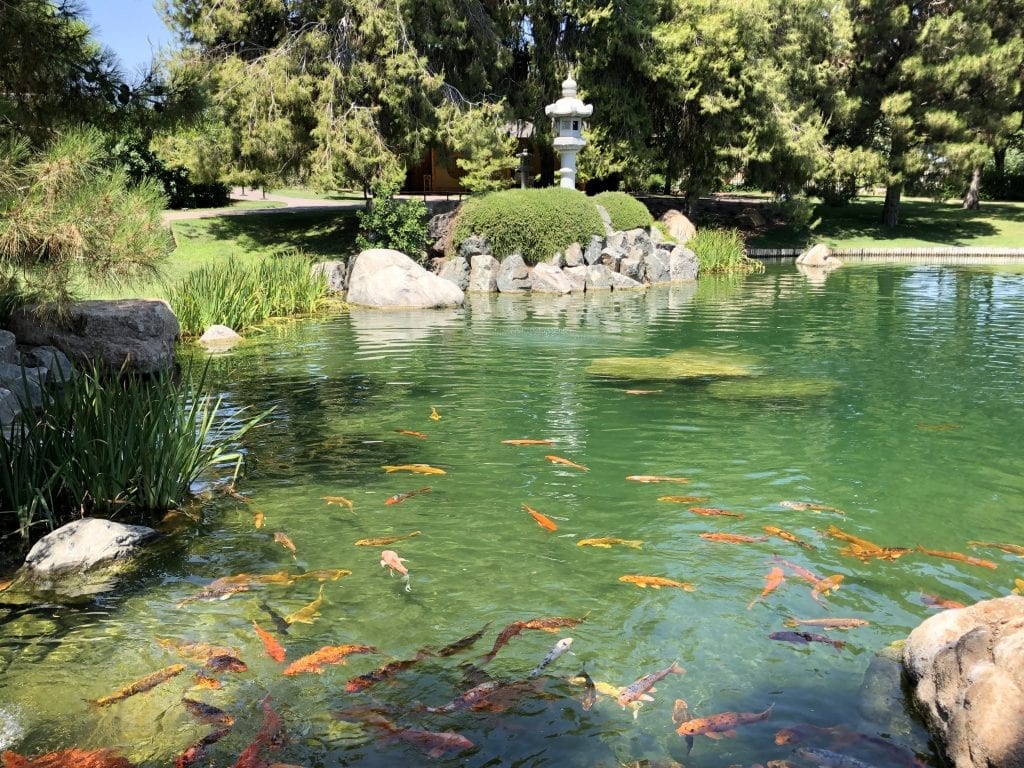
The waterfall is perfectly framed by greenery, rocks and water. We enjoyed sitting near this spot and watching ducklings waddle by.
Just minutes from the heart of Downtown Phoenix, a natural oasis welcomes you to a tranquil, authentic experience. When you walk into the Japanese Friendship Garden of Phoenix, you certainly don’t feel like you’re in Arizona – much less Phoenix.
The peaceful setting features more than 1,500 tons of hand-picked rock from Arizona, stone foot bridges, lanterns and dozens of varieties of desert-tolerant plants. Every element has its own purpose, we discovered, and each branch, leaf or rock is meticulously placed to follow aesthetics and tradition.
Take a few moments with us to relax, learn about Phoenix’s own Japanese Garden and make plans to experience it for yourself.
History of the garden

This area of the garden is made to look like a beach in Japan.
The Japanese Friendship Garden, named RoHoEn, is a joint project of the City of Phoenix and Phoenix’s Sister City Himeji, Japan.
RoHoEn is a combination of three Japanese words — Ro means Heron, a bird symbol of Himeji City, Hō is the Japanese word for the mythical Phoenix bird Fenghuang, and En means garden.
Opened in 2002, the stroll garden was designed by Mr. Nozomu Okita in the traditional miegakure style.
Miegakure, or hide-and-reveal design, is prevalent in Japanese stroll gardens where the entirety of the garden is never visible at once. Instead, the viewer is led to uncover intentionally hidden views of the landscape while strolling along its curved paths.
Japanese Gardening 101

Garden curator Ben Schrephf (right) and his assistant Brandon Clouser use their training in Japanese gardening to keep Phoenix’s own garden beautiful and green – even in the summer.
Typically, the garden would host numerous events, workshops and tea ceremonies a month.
Although they haven’t been able to host many in-person events, the garden has done several virtual events for First Friday.
If you’re looking for a social distanced activity, the garden hosts Tai Chi every Saturday morning at 7:30 a.m.
And, if you want to get your hands dirty, the garden offers volunteer opportunities to help plant and prune on the weekends.
How to experience and support the garden

Fun fact: Koi fish can live over several decades, and many of the Koi at the Japanese Friendship Garden have been there since its inception.
As you stroll the path, you will enjoy flowing streams, a 12-foot waterfall, and a Koi pond with over 300 colorful Koi fish.
Whether you only have an hour or an entire evening, the garden provides a place to take a break from the outside world and admire nature while also learning about Japanese culture.
Meant to be a place of meditation and contemplation, it’s encouraged to walk slowly and speak quietly. Otherwise, there isn’t really any right way to enjoy the garden – just make sure to stay on the walking paths.
The garden reopened in mid-May, and implemented safety precautions that include the requirement of masks and social distancing.
With lost ticket sales and event cancellations through COVID-19 closures, the garden needs support and there are several ways to help.
“We ask people to keep following us on social media and become a member to sustain our operations,” said Reiko Yasui Reavis, Executive Director of The Japanese Friendship Garden.
The Japanese Friendship Garden also takes donations on their website.
Getting there: The Japanese Friendship Garden is about a ten minute walk from the light rail stop at Roosevelt and Central Ave.
The garden also has its own parking lot on location at 1125 N. 3rd Ave., Phoenix.
Tickets: Starting at $7. Memberships start at $40 for a year and include entrance to the Desert Botanical Garden as well as discounts to local restaurants.
Hours: In July, the garden will be open in the evenings only on weekdays from 5 to 8 p.m. Weekend hours are 7 a.m. to 12 p.m. and 5 to 8 p.m.





